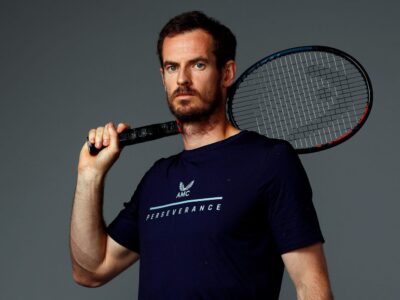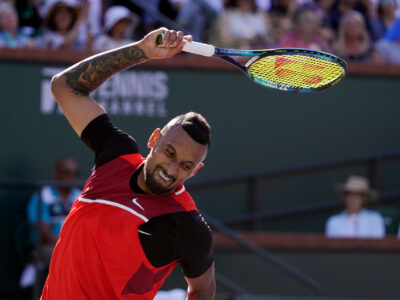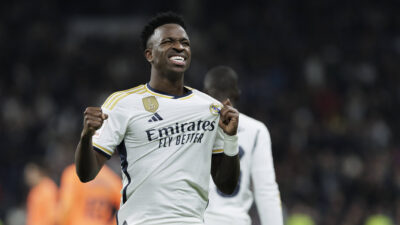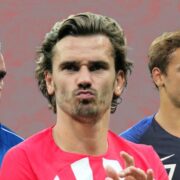Growing up, I usually would stare at my father’s tennis racket hanging loosely beside his library. I would think about who is or would be the best player ever to hold a racket. My curiosity settled years later when I started watching the wonders of Novak Djokovic.
A few decades later, Djokovic is the World Number 1 and the only one of the original Big Three still competing at the highest level. Here’s why Djokovic is the greatest of all time.
Early years
In the bustling streets of Belgrade, Serbia, a young boy named Novak Djokovic spent his early years dreaming of greatness. Born on May 22, 1987, Djokovic was the middle child in a close-knit family.

Djokovic’s love for tennis thrived at the age of four when he first picked up a racket at a local tennis club. With unwavering support from his family, he began honing his skills on the clay courts, displaying a natural talent and fierce competitive spirit that set him apart from his peers.

The early ’90s was tumultuous for young Djokovic. The war in Yugoslavia, particularly the NATO bombing of Belgrade in 1999, had a profound impact on Djokovic, who was just 12 years old at the time.
The war disrupted the normalcy of everyday life and limited opportunities for young athletes like Djokovic. Tennis facilities were often damaged or inaccessible, making it challenging for him to train and compete.
The conflict also isolated Yugoslavia from the international sports community, hindering Djokovic’s exposure to high-level competition and development opportunities.
But Djokovic was never deterred. Despite the odds, he remained resilient and focused on his tennis aspirations.
“Novak was a special talent from the moment I saw him on the tennis court. Despite the challenges he faced growing up during the war, he never lost his love for the game or his desire to succeed.”
Jelena Gencic
Transition to professional tennis
Novak Djokovic’s transition to the professional ranks marked the beginning of an extraordinary journey filled with triumphs, challenges, and historic achievements.
Djokovic’s journey in the Juniors began in the early 2000s when he started competing in tournaments across Europe. His natural talent, exceptional footwork, and powerful groundstrokes quickly caught the attention of coaches and peers alike.

Novak Djokovic officially turned pro in 2003 at the age of 16. He began competing in ATP Challenger and Futures events, gradually gaining experience and climbing the rankings. Djokovic made his mark with notable performances at the Australian Open, French Open, Wimbledon, and US Open.
Djokovic made significant strides in 2006 on the ATP Tour and continued to establish himself as one of the top players in the world in the following years. His success at Wimbledon in 2006 further propelled him to the upper tiers of the junior rankings, where he consistently held a top position.
Is Djokovic the best of the Big 3?
Like in every other popular sport, spectators have different reasons for labeling their favorite player the GOAT.
In tennis however, I believe it’s almost statistically impossible and unfair not to raise the banners for Djokovic as the best player to have stepped on the court.
‘Novak the GOAT, but Roger Federer the Michael Jordan’
Nick Kyrgios
Certainly, Djokovic’s position as the best among the “Big Three” (which includes Roger Federer and Rafael Nadal) is supported by several compelling reasons.
Djokovic’s longevity in the game, his winning record against the Big Three, his Grand Slam record, his ability to compete with the new generation of players, and his remarkable winning streaks and records make a compelling case for him.

Djokovic’s prolonged and active participation in professional tennis is remarkable in terms of longevity. He has been competing at the highest level for over two decades, maintaining his fitness, skill level, and competitiveness throughout his career.
More so, Djokovic holds winning records against each of his rivals in head-to-head matchups, showcasing his dominance and superiority.

Most notable is the historic 2019 Wimbledon final against Federer. Djokovic defeated Federer in five sets to win the title in the longest Wimbledon final (4 hours and 57 minutes). He also played out the longest US Open final against Nadal (5 hours and 53 minutes).
Should we talk about Grand Slams? Of course! Djokovic’s Grand Slam record speaks for itself. He holds the record for the most Grand Slam singles titles among men’s players (24), having bested Federer and Nadal.
More so, he holds the record for the highest number of points in a single season (16,785), a record that may never be matched again.
Many congrats on this amazing achievement @DjokerNole
— Rafa Nadal (@RafaelNadal) June 11, 2023
23 is a number that just a few years back was imposible to think about, and you made it!
Enjoy it with your family and team! 👏🏻
With the emergence of ‘fresh blood’ in the game, one would think that retirement would knock on Djokovic’s door sooner. But we were all in for a shock! Despite the ferocity of the new generation, Djokovic continues to remain at the forefront of men’s tennis effortlessly.
An addition to the list is his impressive winning streak. Djokovic has achieved numerous incredible winning streaks and records throughout his career.
These include holding all four Grand Slam titles simultaneously (the “Nole Slam”), winning multiple ATP Tour titles in a single season, and completing seasons with high winning percentages.
The icing on the cake would be the Career Golden Masters Achievement. Djokovic is the only player in tennis history to have achieved the Career Golden Masters, winning all nine ATP Tour Masters 1000 events at least once in his career, amongst numerous other achievements.
Why do people hate Djokovic?
The reasons for the dislike or criticism directed towards Novak Djokovic are often personal or political. He faced criticism for his involvement in several COVID-19 controversies.
One notable incident occurred during the 2021 Australian Open when Djokovic, who refused to be vaccinated, advocated for more lenient quarantine measures for players, leading to public backlash and accusations of privilege.
Australia has overturned the three-year ban that kept Novak Djokovic from participating in the Australian Open. He was granted a visa and will be able to play in the 2023 Australian Open.
— Bleacher Report (@BleacherReport) November 16, 2022
Djokovic was deported from the country in January after he refused the COVID-19 vaccine pic.twitter.com/fEeCNocDF1
Also, Djokovic’s demeanor and communication style, which can come across as assertive or brash, may not resonate with everyone.
As an Eastern European player, he may exhibit cultural differences in his approach compared to players from other regions, leading to misunderstandings or misinterpretations.
In addition, Djokovic’s occasional display of frustration on the court comes off as abrasive or unsportsmanlike. While intense competitiveness is common among top athletes, Djokovic’s expressions of emotion may rub certain fans or opponents the wrong way.
Also, Djokovic’s dominance over Roger Federer and Rafael Nadal perhaps created a dynamic where he was perceived as disrupting the established order of tennis.
He became the villain to the more beloved figures of Federer and Nadal. This characterization, while not universally accepted, may contribute to negative opinions of Djokovic among certain sections of the tennis community.

“I feel while being No. 1 and still on top of my game, I don’t feel like leaving tennis while in that position.”
You’re probably counting down to the time when Djokovic will hang his racket like my father’s. But is the world’s number 1 willing to retire soon? Who knows, but he just recently became the oldest player to top the rankings.
We may have to wait some more.
Who wrote this?
Desmond is a lawyer whose first love is the young boy from Rosario. He loves writing about the legal profession and sports.



















A very detailed write-up for the tennis legend